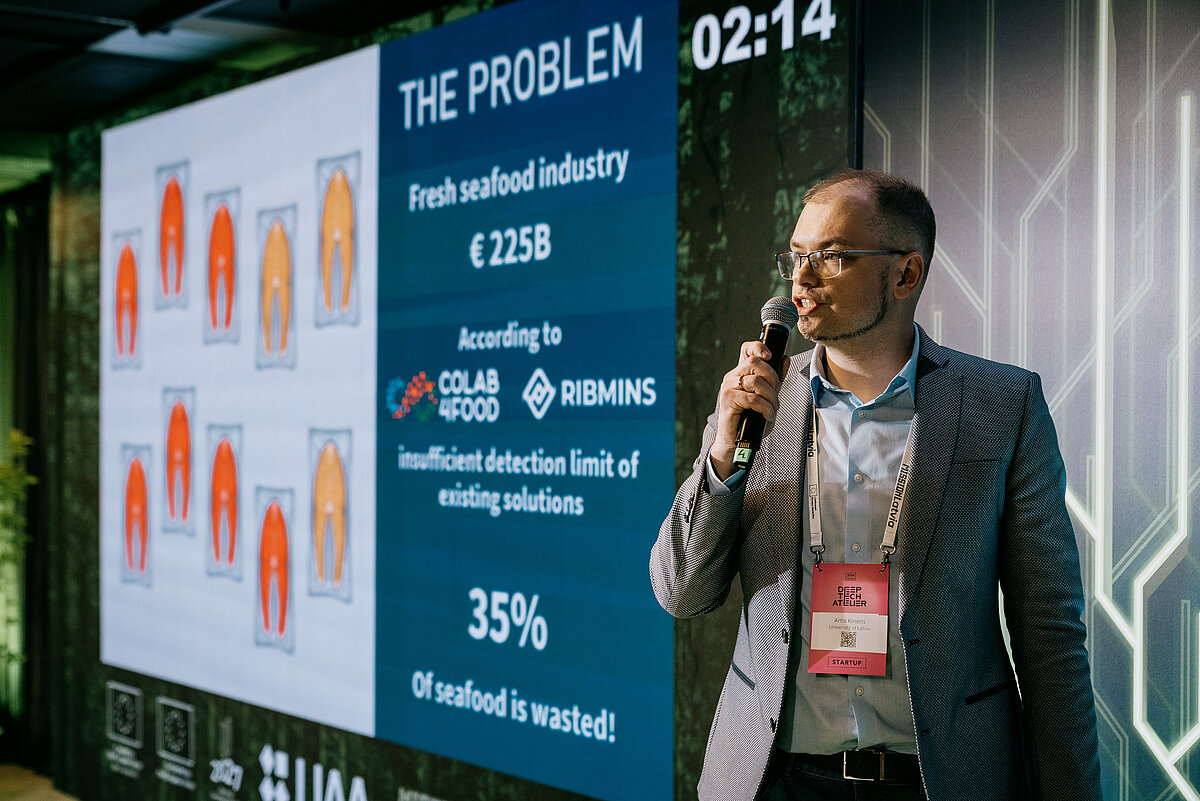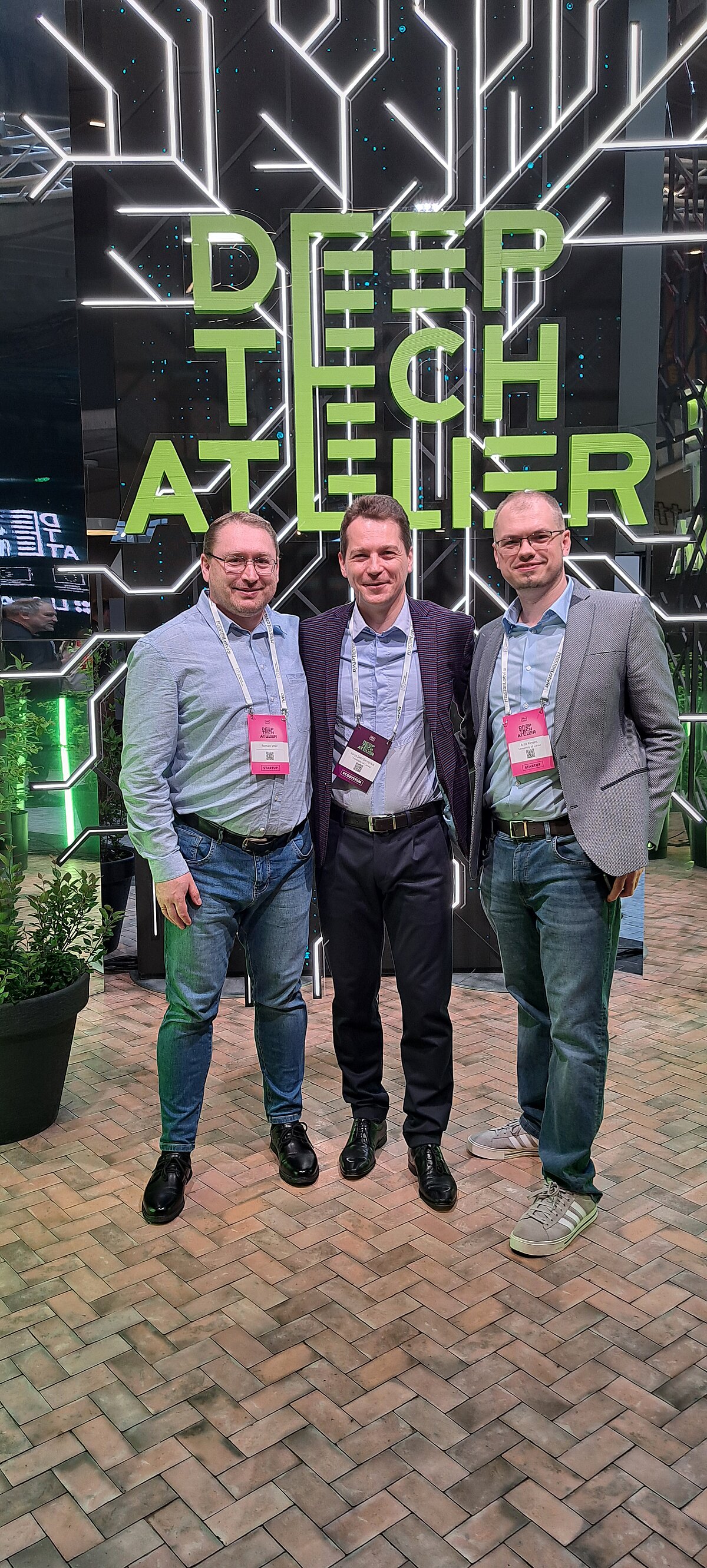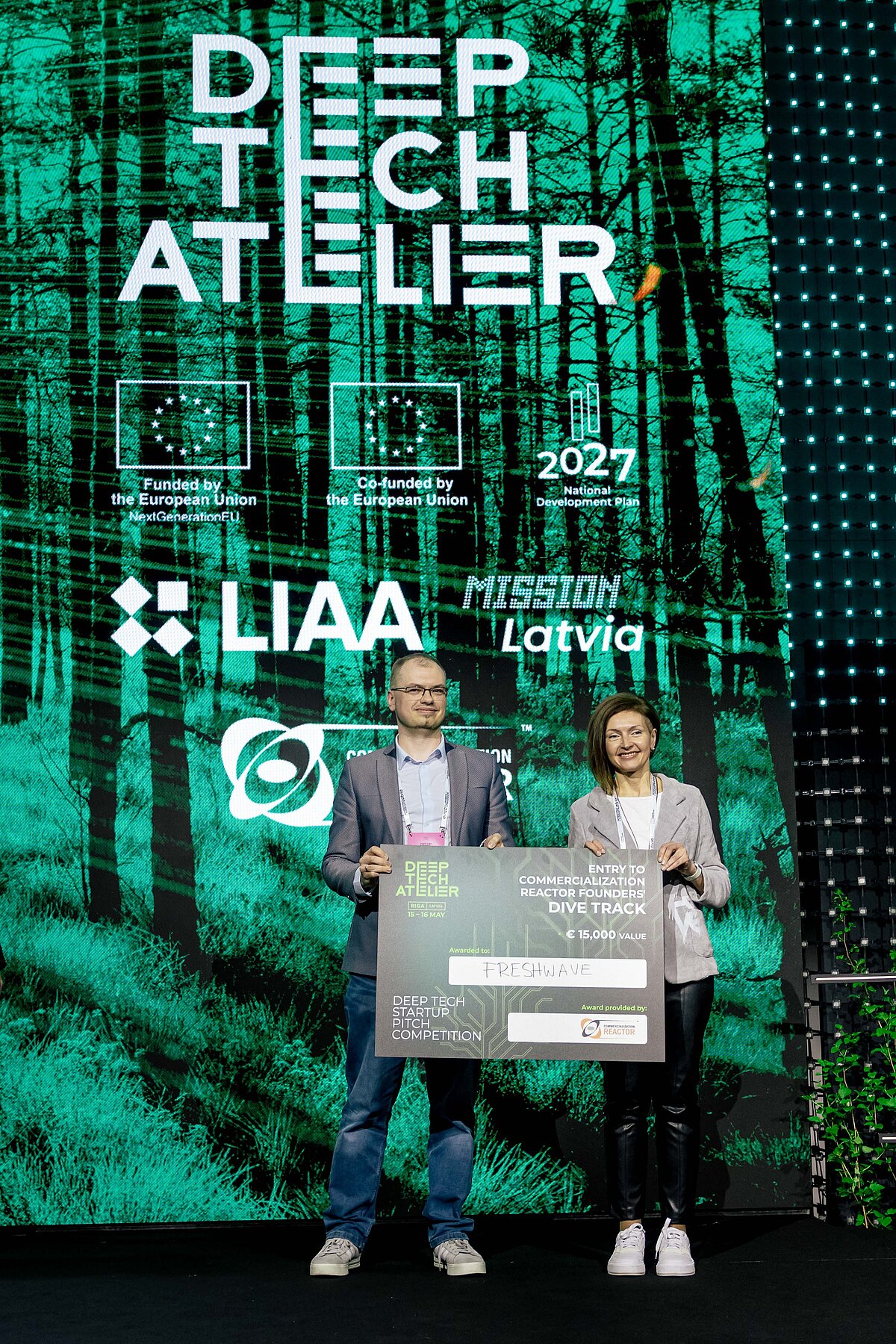
The University of Latvia Faculty of Medicine and Life Sciences is pleased to announce the notable achievement of Dr. Chem. Artis Kinēns, an Associate Professor, at the recent Deep Tech Atelier (DTA) 2025 forum. Dr. Kinēns, leading the FRESHWAVE project, secured the Commercialization Reactor Award for his compelling presentation to investors, earning a €15,000 prize and entry into the Commercialization Reactor Founders' Dive Track, a program offering six months of commercialization training.
Deep Tech Atelier 2025, held in Riga in mid-May, brought together entrepreneurs, scientists, investors, and policymakers from across Europe and the world. Out of numerous project submissions, only 30 were selected to present their ideas, including three from the University of Latvia: FRESHWAVE, Lauraline Tech, and BladeLife. Both FRESHWAVE and Lauraline Tech advanced to the competition finals, where FRESHWAVE ultimately received the Commercialization Reactor award.
The FRESHWAVE project, developed by Dr. Kinēns alongside team members Dr. Phys. Roman Viter, a senior researcher at the University of Latvia's Institute of Atomic Physics and Spectroscopy, and Jurijs Jastrzembskis, a science commercialization expert, offers an innovative solution for determining seafood freshness. This quick and easy-to-use optical sensor aims to revolutionize how seafood freshness is determined, helping supply chains and stores optimize product flow and drastically reduce food waste.
The FRESHWAVE sensor involves a novel optical material embedded in fish packaging. The optical properties of this sensor change in response to the change in seafood freshness. The freshness of the seafood can then be determined by scanning the sensor indicator, potentially with a phone camera. This solution developed by the FRESHWAVE team is designed to reduce the amount of fish currently wasted, addressing the global food waste issue where up to 35% of total food production is discarded.
The FRESHWAVE team is currently preparing a presentation for the BioPhoT competition, a state support program for science projects with market potential, which will take place at the end of May. They are seeking further investment to develop their product. This next phase involves establishing a manufacturing process to convert the novel material into printable ink, identifying suitable printing technology, and integration into food packaging. This transition marks a shift from purely scientific research to a dynamic period of technical and organizational development, as they seek partnerships to bring the project to fruition.
The University of Latvia Faculty of Medicine and Life Sciences extends its congratulations to Dr. Artis Kinēns and his team, Dr. Roman Viter and Jurijs Jastrzembskis, on this significant achievement and looks forward to the continued advancement of the FRESHWAVE project.

 CONFERENCE
CONFERENCE
